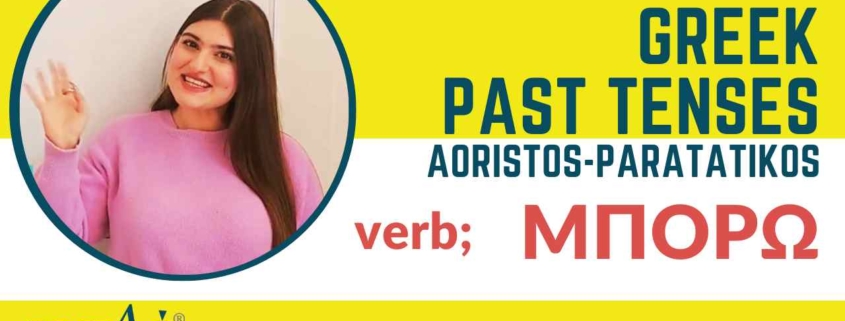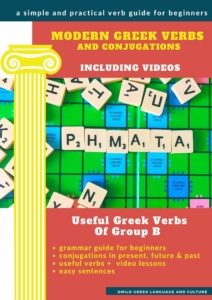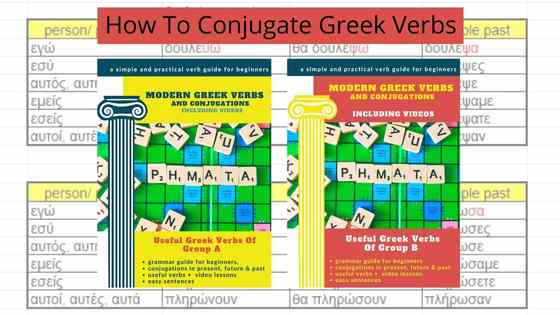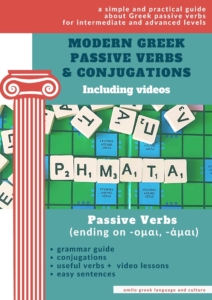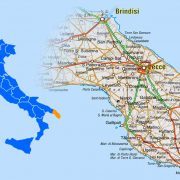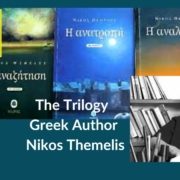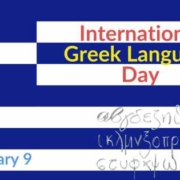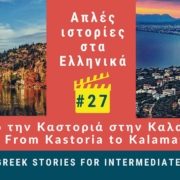Learn the Greek verb “I can”, I could…and start making sentences!
Speaking Greek correctly, without knowing how to conjugate a verb, is impossible.
Every sentence has a verb, so one of the most important grammar aspects when you learn Greek, is ….learning verbs!
The verb “μπορώ” is a verb of the B2 category,
just like
προσπαθώ,
αργώ,
οδηγώ
etc..
and you can also find those verbs in our YouTube language videos list.
For more information and grammar about those verbs, take a look at this ebook
Below, you will first learn this verb in the present tense, and after that also the conjugations of the simple past and past continuous tenses.
If you would like to watch the video first, then click here
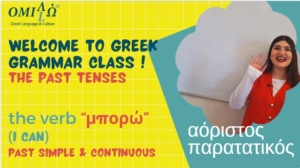
The purpose of this article is to understand the difference between those two past tenses, which in Greek are called aoristos and paratatikos.
So, this lesson is particularly useful if you are already at an intermediate language level.
The verb «μπορώ» in the present tense
Εγώ μπορώ I can
Εσύ μπορείς You can
Αυτός,ή,ό μπορεί He/She/It can
Εμείς μπορούμε We can
Εσείς μπορείτε We can
Αυτοί,ές,ά μπορούν/μπορούνε They can
Some examples
- Μπορώ να τρέξω γρήγορα. I can run fast.
- Μπορείς να με βοηθήσεις; Can you help me?
- Δεν μπορείτε να περιμένετε; You (plural or polite form) can not wait?
How to conjugate the verb μπορώ in Past Simple, or “Aoristos”.
The Aoristos is an ideal tense to describe an action that happens at a particular point in the past.
It gives no information on how long it took, but is used for an action that happened just once,
so NOT an action that was repeated often. Something that we did once and that’s it.
Εγώ μπόρεσα
Εσύ μπόρεσες
Αυτός,ή,ό μπόρεσε
Εμείς μπορέσαμε
Εσείς μπορέσατε
Αυτοί,ές,ά μπόρεσαν/μπορέσανε
some examples
- Μπόρεσα να τελειώσω τη δουλειά. I could finish the work.
- Ο Νίκος δεν μπόρεσε να έρθει στο πάρτι. Nikos could not come to the party.
- Μπορέσατε να πάτε στην Ελλάδα πέρυσι; Could you go to Greece last year?
For your info, this aoristos tense is used most of the time, when you want to say something in the past.
So even if you do not know another past tense, this is the most important tense to learn, and every Greek will understand you.
As you saw in the examples, you can use it to mention things that only happened once, so not many times or repeatedly,
However…there is also another tense, the Paratatikos, which is used by Greeks, f
or an action that happened many times or was repeated in the past and shows duration or a past habit. Something we kept doing in the past.
How to conjugate the verb μπορώ in the Past Continuous tense or “paratatikos”
Εγώ μπορούσα
Εσύ μπορούσες
Αυτός,ή,ό μπορούσε
Εμείς μπορούσαμε
Εσείς μπορούσατε
Αυτοί,ές,ά μπορούσανε
NOTE: the endings for the aoristos and paratatikos, are exactly the same.
However, the stem is different.
For some B2 Verbs, in Aoristos, you add –εσ after the stem and then the correct endings,
while in Paratatikos you add –ούσ after the stem and then the correct endings.
some examples;
- Όταν ήμουν μικρός, μπορούσα να τρώω πολλά γλυκά. When I was young, I could eat a lot of sweets.
- Η Μαρία δεν μπορούσε να κοιμηθεί όλο το βράδυ. Maria could not sleep all the evening.
- Δεν μπορούσαμε να ταξιδεύουμε στον Κόβιντ. We could not travel during Covid.
—————————
Deciding which tense to use can be very difficult, and is not always so clear.
If in doubt, Greeks would use the aorist.
But do not worry, σιγά σιγά! Practice makes perfect!
You can also visit our article with extra information about the aoristos and paratatikos, with more examples.
Click here ; https://omilo.com/greek-grammar-aoristos-paratatikos/
+++++++++++++++++++++++++++
++++++++++++++++++++++++++++++++++++++++

